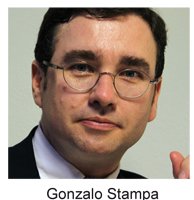Reorganising Portugal’s Commercial Courts
La propuesta de reorganización de los tribunales portugueses, cerrando algunos tribunales y expandiendo otros en los principales centros financieros, no solo cambiará el lugar sino también el modo en que se resuelven los casos, según Nuno Líbano Monteiro de PLMJ.
“A major challenge remains the length of time it takes for a cases, namely in the Commercial Courts. We have more judges per capita than any other European country yet the courts in Lisbon and Oporto continue to face a tremendous backlog, which is very difficult to explain especially to foreign clients.”
Portugal’s Minister of Justice has announced plans to close down a number of regional Courts and to concentrate resources in the main urban centres. This is intended to help refine the judicial process and create more specialised courts, but will require the relocation or redundancy of up to 80 Judges.
The plans are controversial, says Líbano Monteiro, but necessary. Targets to speed up the judicial process were among the terms of the Memorandum agreed in Portugal’s €78bn financial assistance package. But what is proposed is different to the approach taken by the previous Government, which sought to extend the reach of the judiciary beyond the main urban centres.
“Access to justice is important but it cannot be right that you have to wait months for a simple interim measure in Lisbon while some regional courts seemingly have more staff than cases. A better balance has to be found.”
The draft proposals will now be sent before Portugal’s Parliament but are expected to come into effect in September, says Líbano Monteiro.
“The creation of the Commercial Courts was a positive first step but we need to go further and create dedicated IP, competition, insolvency and family courts and to better train Judges and others legal players. Resources are scarce so they have to be focused where most required.”











